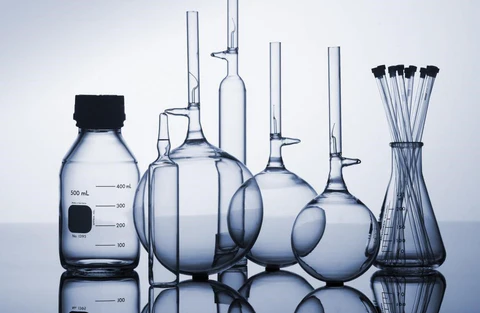Glass containers are often overlooked yet indispensable in various fields. They serve as versatile vessels for a multitude of purposes. From scientific laboratories to culinary kitchens, these unassuming containers play a pivotal role in facilitating experiments, concoctions, and measurements.
A glass beaker, with its simplicity and functionality, embodies the essence of utility and reliability. So, this article focuses on the benefits and applications of this quintessential glassware.
Precision in Measurement
One of the foremost attributes of a beaker lies in its ability to offer precise measurements. With clearly marked graduations etched along the side, this vessel enables scientists, chemists, and researchers to accurately gauge volumes of liquids. Whether it’s a matter of microliters or millilitres, the transparency and calibrated markings of glass containers ensure consistency and reproducibility in experimental procedures.
Versatility Across Industries
Beyond the confines of laboratories, they find extensive use in diverse industries. In culinary arts, these vessels serve as mixing bowls, allowing chefs and bakers to blend ingredients seamlessly. The transparent nature of glass facilitates visual inspection, ensuring the desired consistency and texture of culinary preparations. Moreover, they are instrumental in the field of cosmetics, where precise measurements are crucial in formulating skincare products and fragrances.
Durability and Chemical Resistance
Glass is renowned for its durability and inertness. A beaker is resistant to chemical corrosion and thermal shock. Unlike plastic counterparts, glassware does not leach harmful substances into the contents, making it ideal for handling a wide array of chemicals and solvents. This inherent resistance to chemical reactions ensures the integrity of experiments and safeguards against contamination. This helps in upholding the standards of safety and reliability in scientific endeavours.
Facilitating Heating and Mixing
Another notable advantage of this container lies in their compatibility with heating and mixing processes. The flat bottom design facilitates uniform heat distribution, making them suitable for applications requiring gentle heating or boiling. Moreover, the cylindrical shape allows for efficient stirring and mixing of solutions, ensuring homogeneity in chemical reactions and formulations. Whether it’s titrations, evaporations, or simple stirring, these vessels prove indispensable in laboratory protocols.
Ease of Cleaning and Sterilisation
Maintaining hygiene and sterility is paramount, especially in laboratory settings. A glass beaker excels in this aspect, owing to its non-porous surface. It inhibits bacterial growth and facilitates thorough cleaning. Unlike plasticware, glassware can withstand high-temperature sterilisation methods such as autoclaving, ensuring complete elimination of contaminants. This ease of cleaning and sterilisation not only promotes laboratory safety but also prolongs its lifespan, making it a sustainable choice in the long run.
Promoting Environmental Sustainability
Since the world today is marked by increasing environmental awareness, the choice of sustainable materials is paramount. Glass, being recyclable and eco-friendly, aligns with the principles of environmental sustainability. These solutions are crafted from borosilicate glass. It is known for its resilience and thermal shock resistance and can be reused multiple times without compromising integrity. By opting for reusable glassware, laboratories and industries contribute to the reduction of plastic wastage and minimise their carbon footprint, thus fostering a greener future.
Fostering Innovation and Discovery
At the heart of scientific exploration lies the quest for innovation and discovery. Glass solutions, with their unassuming yet indispensable presence, catalyse the process of experimentation and inquiry. Whether it’s unravelling the mysteries of chemical reactions or concocting culinary masterpieces, these vessels serve as conduits for creativity and exploration. By providing a reliable platform for hypothesis testing and formulation development, they empower scientists and artisans alike to push the boundaries of knowledge.
Such glass containers stand as stalwart companions in laboratories, kitchens, and industries, embodying the virtues of precision, versatility, and durability. With their inherent qualities of transparency, durability, and chemical resistance, they emerge as indispensable tools in the pursuit of knowledge, innovation, and sustainability.
